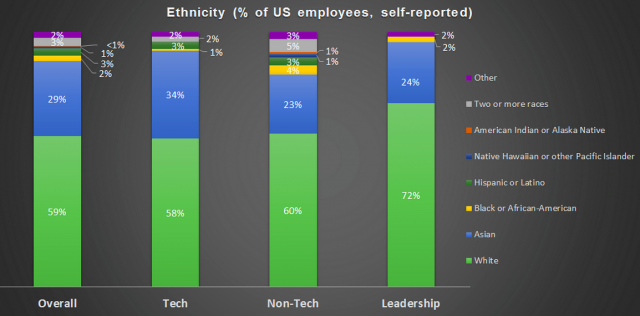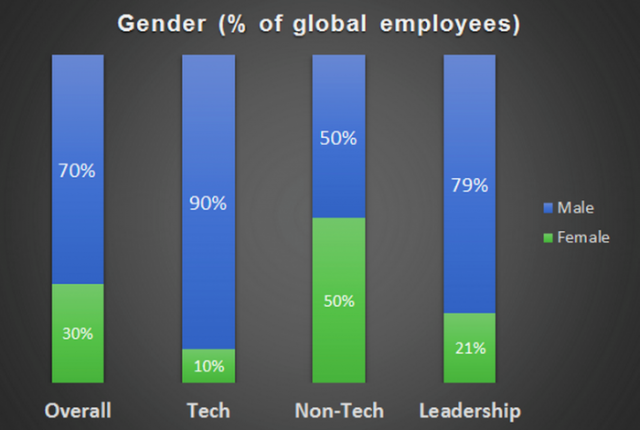
In terms of race and ethnicity, Asians are the second-most represented group, making up 29 percent of the workforce. Combining the percentage of white and Asian workers, that leaves just 12 percent representation for every other group.
And when it comes to tech jobs, the gender gap is even more exaggerated, with 90 percent of those jobs filled by males.
Jesse Jackson, quoted in the San Francisco Chronicle, called Twitter's numbers “pathetic.”
“It does not reflect the nature of California or Twitter’s users,” he said. “To be fair, Twitter users deserve more than tweets. They deserve jobs.”
Twitter is not alone among big-name tech companies with a lack of diversity. Facebook, Yahoo, Google and LinkedIn have all released roughly similar numbers. You can see those compared in this chart from TechCrunch.
One thing that none of these diversity reports mentions is age. You can read one take on that in this New Republic article called Silicon Valley's Brutal Ageism. From the article:
Silicon Valley has become one of the most ageist places in America. Tech luminaries who otherwise pride themselves on their dedication to meritocracy don’t think twice about deriding the not-actually-old. “Young people are just smarter,” Facebook CEO Mark Zuckerberg told an audience at Stanford back in 2007. As I write, the website of ServiceNow, a large Santa Clara–based I.T. services company, features the following advisory in large letters atop its “careers” page: “We Want People Who Have Their Best Work Ahead of Them, Not Behind Them.”
And that’s just what gets said in public. An engineer in his forties recently told me about meeting a tech CEO who was trying to acquire his company. “You must be the token graybeard,” said the CEO, who was in his late twenties or early thirties. “I looked at him and said, ‘No, I’m the token grown-up.’ ”
In talking to dozens of people around Silicon Valley over the past eight months—engineers, entrepreneurs, moneymen, uncomfortably inquisitive cosmetic surgeons—I got the distinct sense that it’s better to be perceived as naïve and immature than to have voted in the 1980s. Full article

